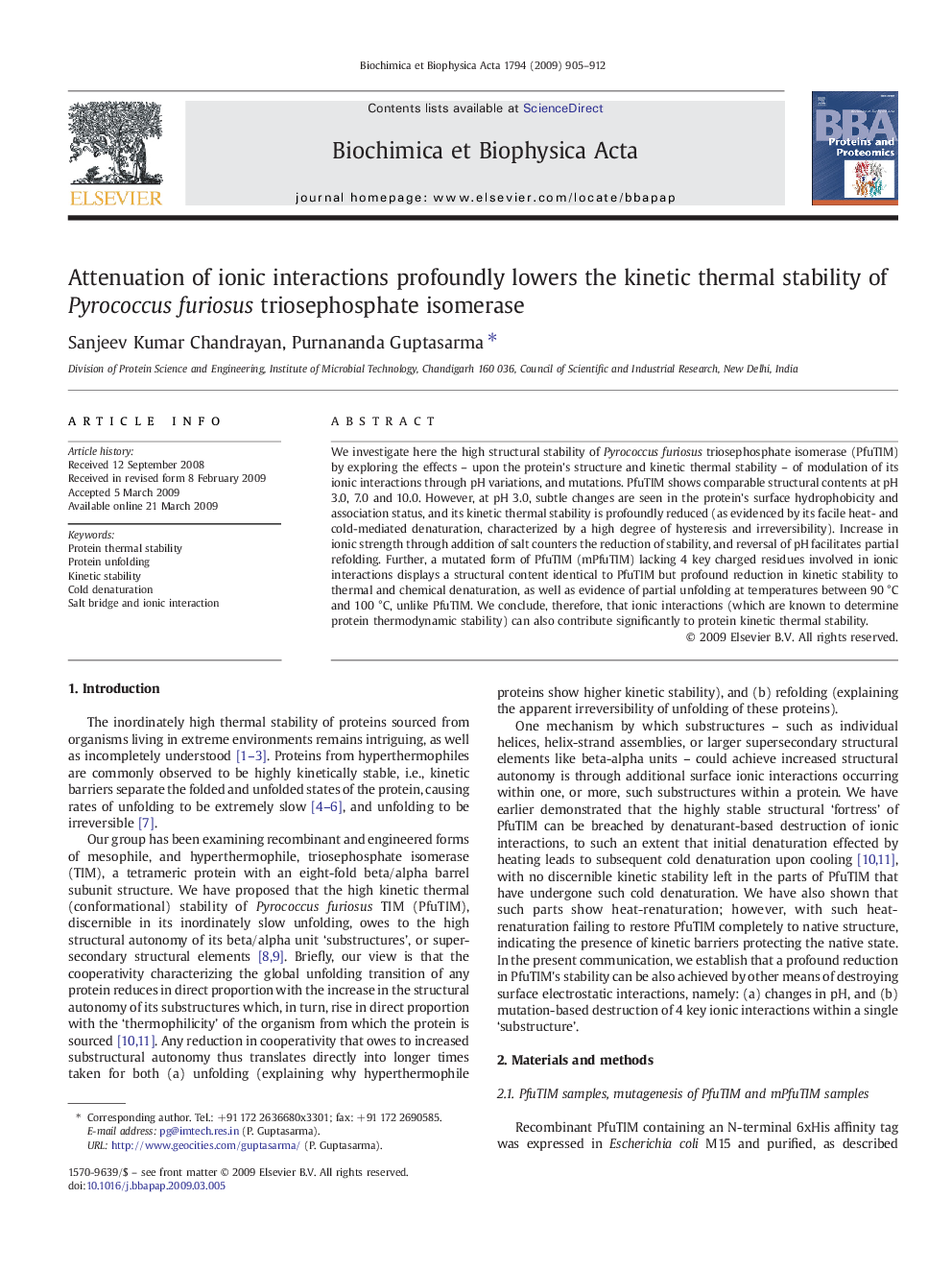| Article ID | Journal | Published Year | Pages | File Type |
|---|---|---|---|---|
| 1180331 | Biochimica et Biophysica Acta (BBA) - Proteins and Proteomics | 2009 | 8 Pages |
We investigate here the high structural stability of Pyrococcus furiosus triosephosphate isomerase (PfuTIM) by exploring the effects – upon the protein's structure and kinetic thermal stability – of modulation of its ionic interactions through pH variations, and mutations. PfuTIM shows comparable structural contents at pH 3.0, 7.0 and 10.0. However, at pH 3.0, subtle changes are seen in the protein's surface hydrophobicity and association status, and its kinetic thermal stability is profoundly reduced (as evidenced by its facile heat- and cold-mediated denaturation, characterized by a high degree of hysteresis and irreversibility). Increase in ionic strength through addition of salt counters the reduction of stability, and reversal of pH facilitates partial refolding. Further, a mutated form of PfuTIM (mPfuTIM) lacking 4 key charged residues involved in ionic interactions displays a structural content identical to PfuTIM but profound reduction in kinetic stability to thermal and chemical denaturation, as well as evidence of partial unfolding at temperatures between 90 °C and 100 °C, unlike PfuTIM. We conclude, therefore, that ionic interactions (which are known to determine protein thermodynamic stability) can also contribute significantly to protein kinetic thermal stability.
